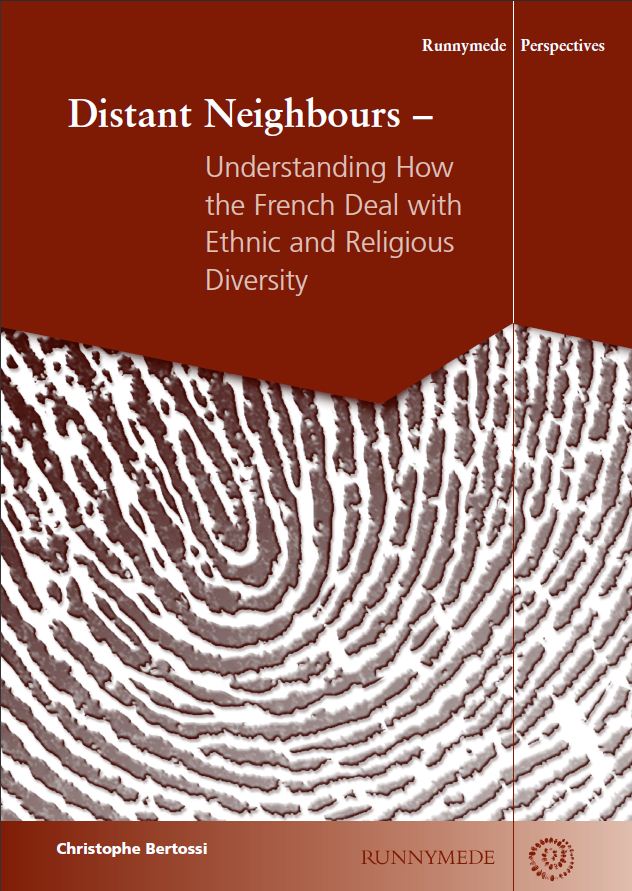Distant Neighbours - Understanding How the French Deal with Ethnic and Religious Diversity

At the end of 2005, the policy response to the suburban riots in France pointed to the so-called anti-integration attitudes of migrants, whose identities were highlighted as the core problem facing their social, cultural and political integration into French society. As a matter of fact, however, these migrants were French citizens. What's more, as fas as their identities were concerned, they did not mobilize on any cultural or religious claims. The issue was actually about equality of opportunities and chances of access to social mobility, as well as spatial segregation connected to ethnic and religious identity. The youngsters involved in the three-week riots fought againts the symbols of their relegation into territories where republican equality did not reach, notably the institutional symbols of French society (police forces, firemen, schools, and so on). They did not contest the principles of French citizenship. They claimed their legitimate place within it. This paper addresses the gap between the policy understanding of the November 2005 crisis, and the social and economic roots of the riots. To do so, it scrutinizes contradictory transformations in the politics and policies of citizenship and ethnicity in France, with a particular attention to the EU dimension impacting integration o ethno-cultural and religious minorities in Europe.
Download the full analysis
This page contains only a summary of our work. If you would like to have access to all the information from our research on the subject, you can download the full version in PDF format.
Distant Neighbours - Understanding How the French Deal with Ethnic and Religious Diversity






